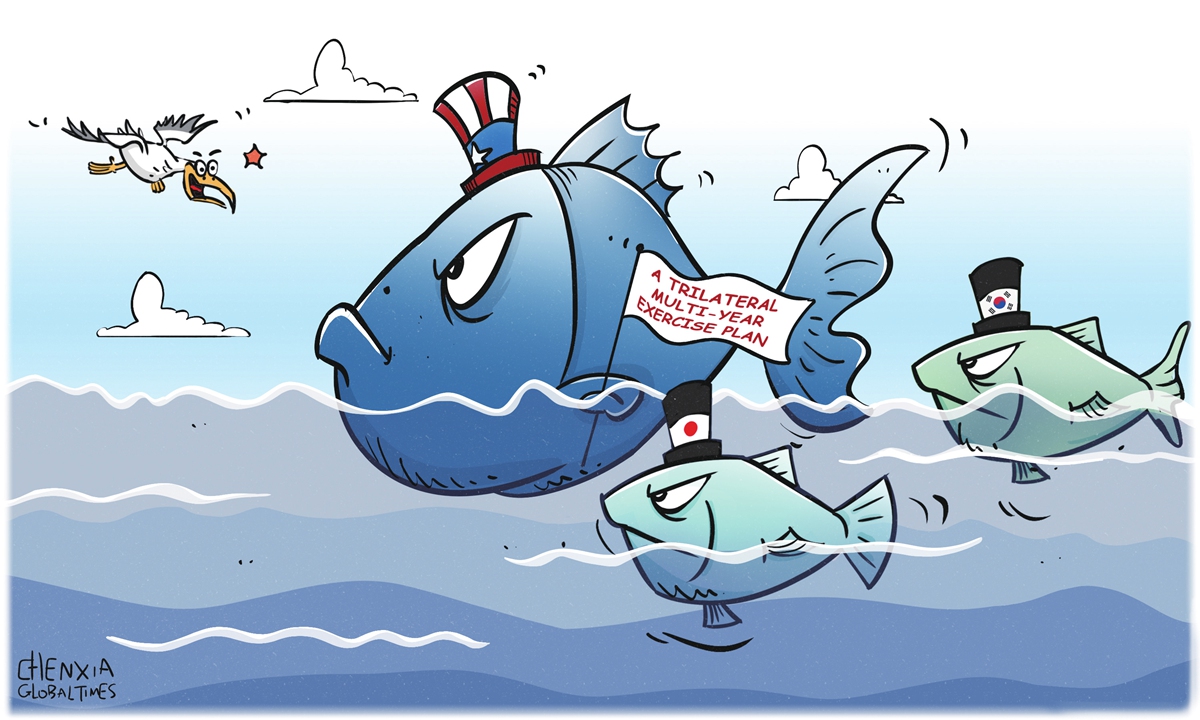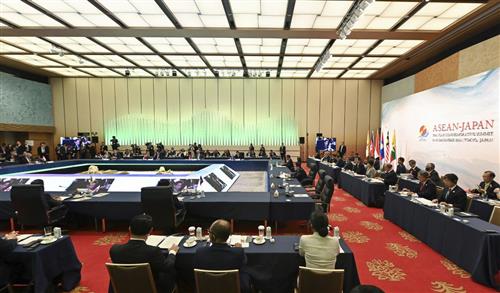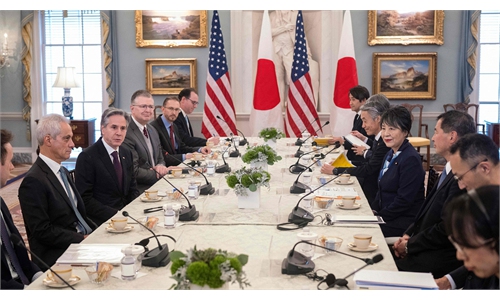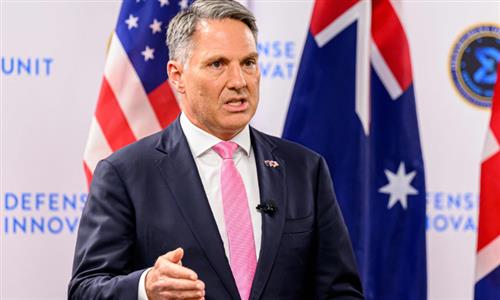Security cooperation among the US, Japan and South Korea will exacerbate regional divisions and lead to nuclear proliferation: experts

A fishy movement. Illustration: Chen Xia/GT
Experts warned on Sunday that the so-called security cooperation among the US, Japan, and South Korea, especially the strengthening of military security ties and the enhancement of so-called military deterrence, will exacerbate the trend of regional bloc confrontation and create a new cold war atmosphere in the region as top diplomats from Japan, the US and South Korea held on Thursday a trilateral meeting which aimed to pursue closer cooperation in addressing North Korea's missile capabilities and Taiwan-related questions.
Meeting in Rio de Janeiro, Japanese Foreign Minister Kamikawa Yoko, US Secretary of State Antony Blinken and South Korean Foreign Minister Cho Tae-yul exchanged opinions over China-related issues. During the meeting, which lasted about an hour, the trio had a "frank exchange of views" on China, a Japanese Foreign Ministry official said.
The three-way talks, Cho's first since assuming his post in January, took place on the sidelines of a foreign ministerial meeting of the Group of 20 major economies.
During the G20 meeting in Rio de Janeiro, Chinese Vice Foreign Minister Ma Zhaoxu met with Cho. The South Korean Ministry of Foreign Affairs stated that the two exchanged views on topics of mutual concern, such as the relationship between South Korea and China. Both sides agreed that the development of the South Korea-China relationship is very important, and that regardless of any issues that may arise between the two countries, close communication should be maintained, according to the South Korean Ministry of Foreign Affairs.
"Cooperation and coordination with our closest allies is more important than ever," Blinken said as he met with the other two foreign ministers.
"Looking at the global landscape, the free and open international order, based on the rule of law, is now being challenged," the US Department of State quoted Kamikawa as saying. "Our strategic coordination is more important than ever, and I am eager to work even more closely with both of you in dealing with North Korea and beyond."
Analysts said on Sunday that Japan's "Indo-Pacific strategy" focuses on "a free and open Indo-Pacific," which is also the current main diplomatic direction of the Kishida administration. South Korea also introduced its own version of the so-called Indo-Pacific strategy in 2023, which is in line with South Korea's aspirations as a major power. Overall, the expansion of the US-Japan-South Korea security cooperation in the Indo-Pacific direction mainly focuses on two areas, Southeast Asia and the Pacific Islands.
To some extent, they also want to compete with China for influence and to maintain the US' dominant position in the region. Japan and South Korea also want to ride on the coattails of the US to achieve their aspirations and ambitions, expanding their political, economic, and security influence in the region.
This foreign ministers' meeting is actually a continuation of the close interaction among the US, Japan, and South Korea, to confirm the previous consensus, Xiang Haoyu, a research fellow at the China Institute of International Studies, told the Global Times on Sunday.
Experts warn that with the US, Japan, and South Korea as the core, the future "East Asian version of NATO" or "Northeast Asian version of NATO" is also taking shape.
For the region, the involvement of the US, Japan, and South Korea in the Taiwan-related question and South China Sea issues will to some extent intensifies the conflicts and tensions in the region, Xiang noted.
There is also the risk of nuclear proliferation, he warned, that is brought by the US, Japan, and South Korea's cooperation in developing nuclear missiles targeting North Korea, and the strengthening of the so-called extended deterrence, which involves the continuous presence of US strategic nuclear assets such as strategic submarines and bombers in the Korean Peninsula. Additionally, domestic discussions in Japan and South Korea on independent nuclear possession could also bring about the risk of nuclear proliferation, he warned.



